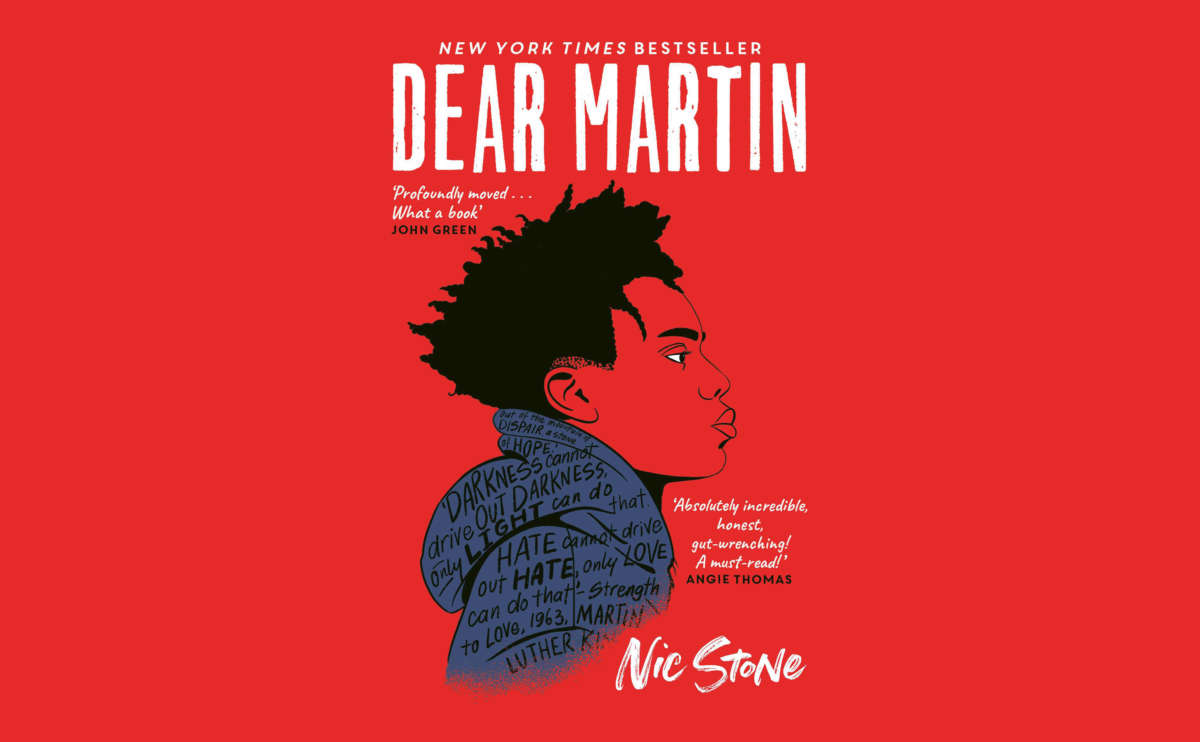A North Carolina school district has banned from its English curriculum a best-selling novel that depicts the life of a fictional Black teenager who struggles to deal with racism in his community while trying to follow the teachings of civil rights icon Martin Luther King Jr.
Haywood County School District superintendent Bill Nolte reportedly made the decision to pull Dear Martin from 10th-grade English classes at Tuscola High School after just one parent complained about the book, ostensibly because it contains “explicit language” and some sexual references. Nolte made the decision on his own, within hours of receiving the complaint, and did not read the book prior to deciding to remove it from classrooms.
The book, written by author Nic Stone, tells the fictional story of a Black high school student named Justyce, who must navigate racial profiling and police violence while preparing to attend an Ivy League university following graduation. According to Common Sense Media, the book includes “standard boy-girl affections and feelings,” and a number of swear words, including the n-word.
The district’s curriculum standard doesn’t contain any provisions saying that high school-level books can’t contain such content; many of Shakespeare’s works, which are often taught in classrooms, contain far more sexual themes.
Earlier this month, the father who complained about the book was told by the school’s principal that if he had issues with the book’s subject matter, his son could read a different book instead. But the father demanded that the book be removed from the curriculum completely, despite the fact that he was the only parent who had complained.
Nolte defended his removal of the book by claiming that “the intended educational message or purpose of the book was being diminished by the way it was written, by the amount of profanity and innuendo.”
But in an interview with Smoky Mountain News, Michael Boatright, a professor of education at Western Carolina University, said that Dear Martin may have been targeted for depicting the reality of racism in modern-day America.
“Adolescent literature, like Nic Stone’s Dear Martin, is a frequent punching bag for school administrators and school boards…Commonly taught novels [such as To Kill a Mockingbird and The Great Gatsby] are regarded as safe because they are decades if not centuries old,” Boatright said. “They do not reflect life in America in 2022.”
“Was the book banned at Tuscola High School because there is a high ratio of expletives per page?” Boatright went on. “Was it banned due to its omission from a syllabus? Teenagers are no strangers to expletives, and teachers often make changes to their syllabi based on the needs of their students. Or, was Dear Martin banned because of a desire to shield students from the reality of current and past events involving race and police brutality?”
Students can still choose to read Dear Martin independently — but because the Tuscola High School library doesn’t have the book on its shelves, the author of the book has encouraged her Twitter followers to send copies of Dear Martin to the school.
The removal of Dear Martin from the Tuscola High School curriculum comes as a right-wing campaign to ban novels exploring issues like race and social justice sweeps schools across the country. Earlier this month, a school district in Tennessee banned the graphic novel Maus from its curriculum, also citing sexual references and explicit language; the book, which was written by the child of Auschwitz survivors, depicts the horrors of World War II and the Holocaust.
Art Spiegelman, who wrote Maus, said that he was “baffled” by the “Orwellian” decision to ban the book from being taught in classrooms.
“This is disturbing imagery,” Spiegelman admitted. “But you know what? It’s disturbing history.”
Speaking against the authoritarian crackdown
In the midst of a nationwide attack on civil liberties, Truthout urgently needs your help.
Journalism is a critical tool in the fight against Trump and his extremist agenda. The right wing knows this — that’s why they’ve taken over many legacy media publications.
But we won’t let truth be replaced by propaganda. As the Trump administration works to silence dissent, please support nonprofit independent journalism. Truthout is almost entirely funded by individual giving, so a one-time or monthly donation goes a long way. Click below to sustain our work.
